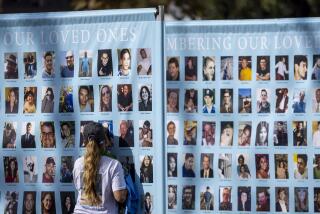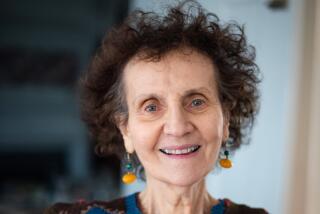Paul Meier dies at 87; influential statistician
Paul Meier influenced the field of statistics in two major ways: as a proponent of a method that helped eliminate bias in determining the effectiveness of treatments in clinical trials, and by introducing a system used to estimate survival rates for patients undergoing different treatments in trials.
A longtime professor at the University of Chicago, Meier, 87, died Aug. 7 at his home in New York, said his daughter Joan Meier. He had suffered a major stroke more than 10 years ago and had been beset by a series of strokes more recently, she said.
Meier’s work in methods for clinical trials led to a system that randomized which patients received an experimental treatment, as opposed to a more traditional treatment.
“His contributions to randomized trials and … to rigorous methodology which enables us to accurately assess what works and what doesn’t, has a huge impact on people’s lives,” said Ted Karrison, the director of the Biostatistics Lab at the University of Chicago, who was both a graduate student and collaborator of Meier.
In 1958, Meier coauthored a paper that introduced the Kaplan-Meier estimator. The method, according to the University of Chicago, “incorporates data from patients (in clinical trials) who have been followed until death, as well as others who survived.”
“This was an unusual paper,” said Stephen Stigler, chairman of the Department of Statistics at the university. “The scientists didn’t work together.”
Meier and Edward L. Kaplan had each submitted similar papers to the same publication, the Journal of the American Statistical Assn. The editor then convinced them to combine their work into one paper, which has been cited about 34,000 times since its publication.
Meier was born July 24, 1924, in Newark, N.J. He graduated from Oberlin College in 1945 with a bachelor’s degree in mathematics and physics. He continued his education at Princeton University, earning a master’s in mathematical logic in 1947, followed by a doctorate in statistics in 1951.
From 1948 to 1952 he taught at Lehigh University, then spent five years at Johns Hopkins University, where he became an associate professor after beginning as a biostatistics research associate.
He joined the University of Chicago statistics faculty in 1957, and during his 35 years there served as chairman or acting chairman of the department of statistics for more than 10 years.
After leaving Chicago, he became a faculty member and head of the Division of Biostatistics at Columbia University in New York.
Meier helped found the Society for Clinical Trials, and from 1986 to 1987 he was its president. He was also an advisor to the U.S. Food and Drug Administration.
Besides his daughter Joan, Meier’s survivors include his wife of nearly 63 years, Louise Goldstone Meier; daughters Diane and Karen; and five grandchildren.
More to Read
Start your day right
Sign up for Essential California for the L.A. Times biggest news, features and recommendations in your inbox six days a week.
You may occasionally receive promotional content from the Los Angeles Times.




















































